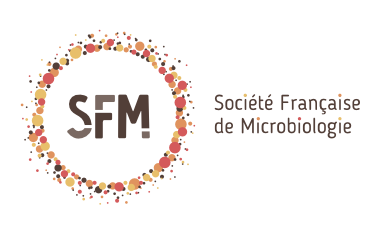Thesis LUE 2019 – December 2019-2021
mISSILE-ATB : Impact of chronic StresS on IntestinaL bactErial diversity and AnTiBiotic resistance
Direction and co-direction : Catherine CAILLIEZ-GRIMAL – Corentine ALAUZET
Laboratoire Stress IMmunité Pathogènes EA7300 – Université de Lorraine http://simpa.univ-lorraine.fr
Summary: The gut microbiota (GM) is a complex ecosystem whose homeostasis is sustained by a constant influx of commensal microorganisms. It is an environment conducive to horizontal gene transfer (HGT) through continuous nutrient flux, high density and diversity of species, including antibiotic-resistant strains, and a permanent dialogue between bacteria. The composition and organization of gut can be affected by various factors including acute or chronic host stress. Our work has shown that chronic stresses significantly modify GM composition by decreasing Porphyromonadaceae family members in murine models. The objectives of this project are to study the bacteriological properties (adhesion, antimicrobial activity) of taxa of interest belonging to this bacterial family and to explore the influence of host stress on antibiotic resistance gene (ARG) transfer within the GM. The results obtained will make it possible to envisage means of combating stress-induced dysbiosis and associated pathologies.
Keys words: gut microbiota, stress, Parabacteroides, Barnesiella, antibiotic resistance, horizontal gene transfer
Scientific field: bacteriology, molecular biology, cell culture, bacterial physiology, microbial genetics
Aim: The “mISSILE-ATB” project is part of the overall EA 7300 project, which is exploring the impact of various murine models of chronic stress on the immune system and intestinal microbiota. This project is divided into two parts: the first one aims to characterize the bacteriological properties of two bacterial taxa of interest impacted by stress whose loss could be deleterious to the host (Parabacteroides distasonis and Barnesiella sp.). These anaerobic taxa, present in the GM of humans and mice, are indeed poorly studied especially because of their fastidious nature. Our team has recognized expertise in anaerobes and possesses a panel of strains representative of the diversity of these two taxa that will permit us to explore the inter-strains variability described for many bacterial factors. The second part concerns the influence of chronic stress on ARG transfer within the GM. At first, the methodologies for quantifying HGTs in the murine gut and characterizing the recipient species should be optimized. Once all the parameters of this in vivo detection model validated, we will apply it to mice subjected to chronic stress in the presence or absence of antibiotic selection pressure in order to mimic what happens in human gut.
The results obtained in the first part of this work will allow to better understand the behavior of P. distasonis and Barnesiella sp. within the GM, and thus to consider ways to counteract their stress-induced loss. The second part will permit to evaluate the impact of stress on the frequency of HGTs within a native gut. If we observe that host stress enhances ARGs transfer, thus promoting their dissemination, this will open new ways of study in the fight against the emergence of antimicrobial resistance.
Methods:
- Characterization of bacteriological properties of bacterial taxa of interest (adhesion capacities (biotic and abiotic supports), electrokinetic properties, antimicrobial properties…) and the influence of stress markers.
- Genetic transfer within the GM : quantification of plasmid transfer by qPCR and flow cytometry from different strains of E. coli mimicking transient or resident flora.
Candidature
Required competences: Microbial Physiology, Molecular Biology, and Microbial Genetics.
Selection based on: Master of microbiology with a good level in bacteriology (Candidate’s marks and rankings in M1 and M2 essential), the candidate’s motivation, scientific maturity, curiosity, analytical mind, English proficiency, candidate’s ability to present his/her work, professional experience of internship(s) in laboratory or any other research work already carried out (reports, publications) in phenotypic and molecular microbiology, autonomy and ability to work in a team.
Applications are open until November 13 2019 at http://biose.univ-lorraine.fr.
Project available on https://www.campusfrance.org/fr




